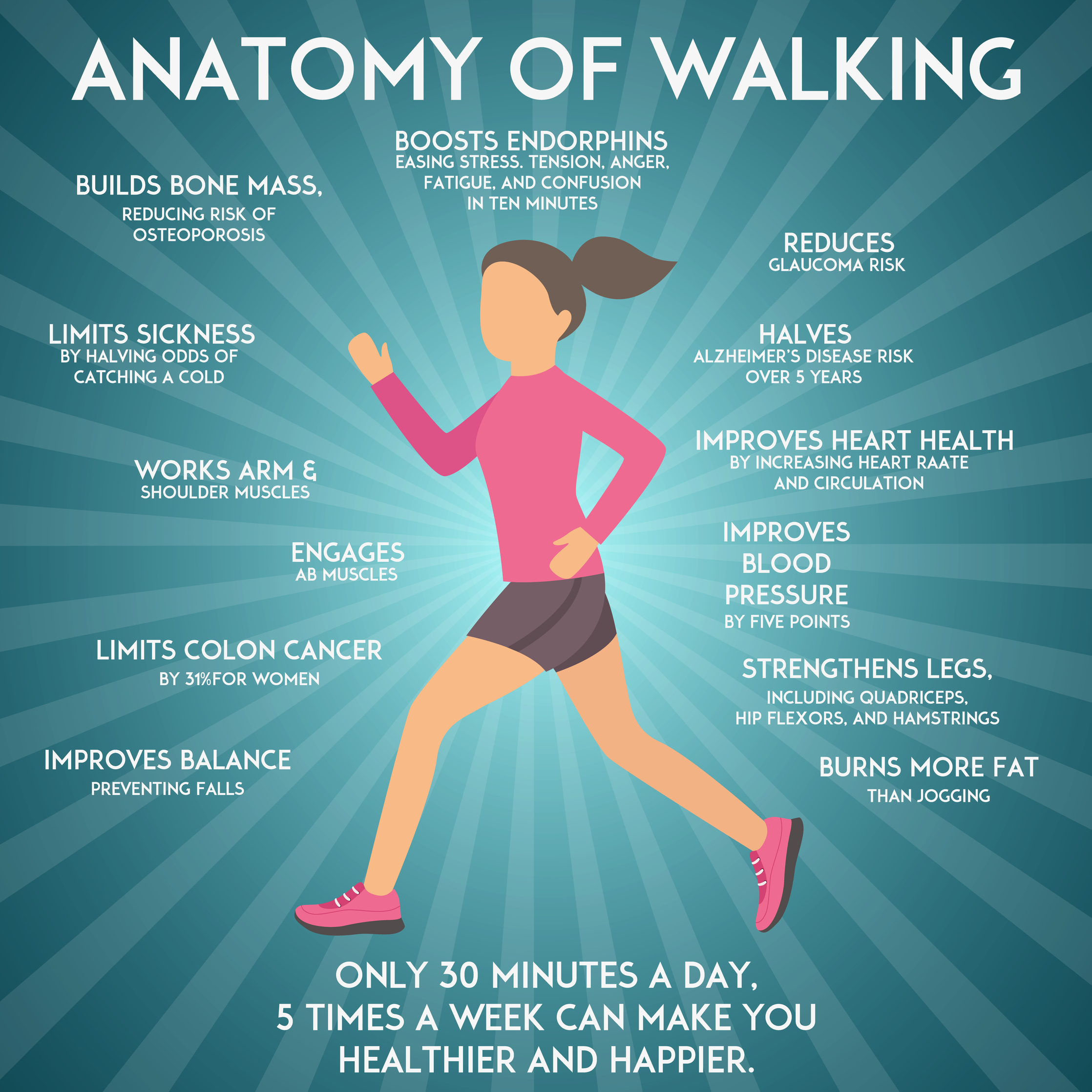 Walking benefits our health in many positive ways! It increases “endorphins” which are protein-like chemicals made in the brain that can have a relaxing effect, a pain-relieving effect, and also reduce stress and increase well-being.
Walking benefits our health in many positive ways! It increases “endorphins” which are protein-like chemicals made in the brain that can have a relaxing effect, a pain-relieving effect, and also reduce stress and increase well-being.
A recent study from Stanford University found that a person’s creative thinking and ideas improve while they are walking and just afterwards. The researchers discovered that whether one walks outdoors or indoors, it equally boosted creative ideas and and invigoration.
Compared to those who did more sitting, those who walked had significantly higher creativity and imagination levels.
Other studies show that walking can increase energy, strengthen the heart, relax stiff joints, boost one’s immunity, create better muscle tone in the legs, and also burn calories.
When we walk, the body’s lung capacity increases and oxygen is better provided to all the tissues; one’s digestion and metabolism improves; and circulation is increased in the eyes, which can prevent eye diseases and improve vision.
Regarding a sounder, deeper sleep resulting from taking walks, studies at the University of Arizona have found that walking more than six blocks a day at a normal pace significantly improves sleep at night. Scientists suspect that walking helps to set our biological clock into a consistent sleep pattern.
For those of us who work in an office, its important to stand up and stretch and take breaks to walk around a bit at least once an hour to keep things moving and maintain good health in the body
These walking breaks are important for muscle and bone health, as well as for the heart and other organs. Better yet, go outside and get a new, refreshing view of things before settling back down to work.
This health news is provided by Nutrition by Nutrition Breakthroughs, maker of the original calcium and magnesium based sleep aid Sleep Minerals II and Joints and More, a natural supplement for joint relief, less aches and pains, stronger hair and nails, and more energy.
***** L.R.C. of Massachusetts says: “I had become dependent on sleeping drugs and couldn’t sleep without them. Now I take the Sleep Minerals before bed and I can sleep through the whole night without drugs. I’m also able to easily fall back to sleep if I do have to get up. Another benefit is this helps alleviate my chronic fatigue and aches and pains.”
Wishing you some joyous creativity in your walks and some great sleep!





